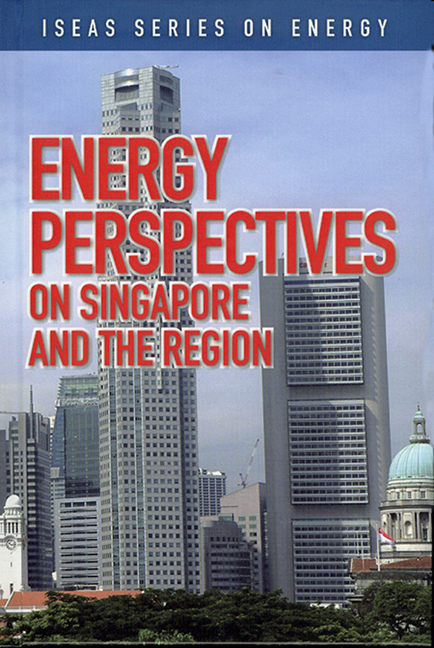Book contents
- Frontmatter
- Contents
- Foreword
- Preface
- The Contributors
- 1 Overview of Singapore's Energy Situation
- 2 Singapore's Changing Landscapes in Energy
- 3 Singapore's Role as a Key Oil Trading Centre in Asia
- 4 Large-Scale Solar PV Power Generation in Urban High-Rise Buildings in Singapore
- 5 The High-Carbon Story of Urban Development in Southeast Asia
- 6 Renewable Energy and the Environment: Technology and Economic Perspectives
- 7 Delivering Results in a Booming Rig Market
- 8 The Success Story of Rig Building in Singapore
- 9 The Singapore Oil Situation
- 10 Singapore Petroleum Company: Adding Value to the Singapore Oil Industry
- 11 Oil Storage: The Singapore Story
- REGIONAL and INTERNATIONAL
- Index
5 - The High-Carbon Story of Urban Development in Southeast Asia
Published online by Cambridge University Press: 21 October 2015
- Frontmatter
- Contents
- Foreword
- Preface
- The Contributors
- 1 Overview of Singapore's Energy Situation
- 2 Singapore's Changing Landscapes in Energy
- 3 Singapore's Role as a Key Oil Trading Centre in Asia
- 4 Large-Scale Solar PV Power Generation in Urban High-Rise Buildings in Singapore
- 5 The High-Carbon Story of Urban Development in Southeast Asia
- 6 Renewable Energy and the Environment: Technology and Economic Perspectives
- 7 Delivering Results in a Booming Rig Market
- 8 The Success Story of Rig Building in Singapore
- 9 The Singapore Oil Situation
- 10 Singapore Petroleum Company: Adding Value to the Singapore Oil Industry
- 11 Oil Storage: The Singapore Story
- REGIONAL and INTERNATIONAL
- Index
Summary
INTRODUCTION
The response to global competition in the Southeast East Asian region has pitted cities against each other and set them on a development pathway that implies high consumption of energy from non-renewable sources. This means high carbon emissions and a development trajectory that is set to follow those of developed countries in the Asian region and the West.
Given the high energy prices that the world has seen in the wake of several natural disasters like Hurricane Katrina in New Orleans and the importance of the Kyoto Protocol in addressing global climate change, the high-carbon development pathways that Southeast Asian cities are taking will face major challenges particularly in terms of environmental sustainability. These sustainability challenges are seen in the urban sprawl characterizing city expansion in both the largest as well as the medium-sized cities. Urban congestion with its implications for transport and mobility in the cities has been practically a constant in the patterns of urban growth seen in Southeast Asian. Such urban development trends have considerable implications for urban energy consumption and in turn, carbon emissions in the region.
There has been considerable rhetoric and numerous initiatives seen in incorporating the concept of sustainability into development agendas in Southeast Asia (ASEAN 2002). Indeed, Singapore, one of the member-states of the Association of Southeast Asian Nations, is leading an Asian Sustainable Cities initiative. Yet the more visible aspects of urban growth and development in Southeast Asia have been the outcome of the race to compete for foreign direct investment and international businesses.
With economies in the region struggling to cope with the fall-out from the Asian economic crisis of 1997 and the phenomenal rise of China in the regional and global economy, urbanization and rapid urban development have serious implications not only for the major cities but also environmental sustainability. This is particularly in terms of energy consumption and high carbon emissions which have paralleled the growth of cities and their populations in the Southeast Asian region.
- Type
- Chapter
- Information
- Energy Perspectives on Singapore and the Region , pp. 47 - 57Publisher: ISEAS–Yusof Ishak InstitutePrint publication year: 2007



